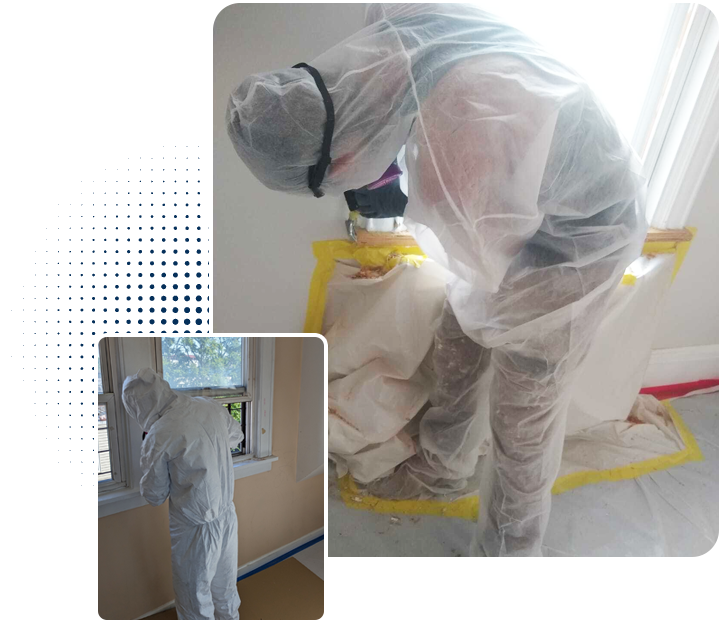Ways to eliminate HPD lead violations to meet safety standards.
Ways to eliminate HPD lead violations to meet safety standards.
Blog Article
Clear HPD Lead Violations and Secure Your Residential Property Financial Investment
Navigating the intricacies of HPD lead offenses is crucial for homeowner who focus on both compliance and tenant security. With the significant wellness dangers related to lead direct exposure, particularly in older buildings, attending to these infractions is not just a governing commitment yet a critical investment in the residential property's long-lasting worth. By recognizing the steps required to deal with these concerns and the significance of prompt action, landlords can improve their reputation and avoid prospective charges. The ramifications of overlooking this obligation may be more extensive than you understand, triggering a better assessment of your existing approach to home administration.
Comprehending HPD Lead Violations
Lead violations determined by the Department of Housing Preservation and Development (HPD) are essential issues that need instant attention because of the major health threats connected with lead exposure, especially in youngsters. HPD lead violation clearance. These infractions normally emerge in structures constructed before 1978, when lead-based paints were commonly utilized. Residence that fail to abide by HPD policies might deal with significant lawful and financial repercussions

Landlords are obligated to attend to these infractions immediately. Failing to do so can result in penalties and further lawsuit from the HPD. Furthermore, preserving compliance not only makes certain renter safety however likewise safeguards building worth and investment. Property owners have to proactively take care of lead dangers by performing normal assessments and applying needed rehabilitative measures to adhere to HPD guidelines.
Wellness Risks of Lead Direct Exposure
Exposure to lead presents significant health and wellness threats, particularly for susceptible populations such as kids and expectant females. Lead is a harmful metal that can trigger a variety of negative wellness results, primarily influencing the nervous system.
Pregnant women exposed to lead may experience problems such as preterm birth, reduced birth weight, and developmental concerns in their youngsters. The unborn child is specifically at risk to lead's harmful effects, as it can interfere with mind growth.

Given these serious health and wellness dangers, it is crucial for property proprietors to attend to lead threats proactively. By making certain conformity with lead security regulations, they not only secure the health of their renters however likewise protect the value of their building investments. Recognition and punctual activity are essential to alleviating the risks connected with lead exposure.
Steps to Resolve Violations
Addressing lead violations is essential for keeping both lessee security and residential property value. The initial step in resolving lead violations is to conduct a thorough assessment of the residential property to determine areas where lead hazards might exist. Engage a certified lead assessor or danger assessor to perform this evaluation, ensuring that all prospective issues are recorded.
When the inspection is full, it is important to develop a removal plan customized to the certain violations determined. This plan must adhere to neighborhood and government policies and outline the needed actions to get rid of lead threats successfully. Employing a certified lead reduction professional is suggested, as they possess the expertise and devices to take care of lead safely.
After removal work is completed, a follow-up examination should be carried out to validate that all lead risks have actually been effectively dealt with (HPD lead violation clearance). This action is essential for guaranteeing conformity with the Division of Real Estate Conservation and Development (HPD) guidelines. Ultimately, documenting the entire process, consisting of examinations, remediation efforts, and communication with lessees, will certainly help maintain navigate to this website transparency and secure your residential or commercial property financial investment in the long-term. Maintaining records will additionally aid in addressing any kind of future concerns or offenses that might arise.

Importance of Timely Action
Taking timely action to settle lead offenses is critical for guarding renter health and wellness and making sure conformity with legal obligations. Lead direct exposure poses considerable health and wellness threats, especially to vulnerable populaces such as kids and pregnant women. By resolving these infractions promptly, homeowner show a dedication to renter health and public safety and security.
In addition, prompt resolution of lead violations is important for meeting regulative demands. The New York City Department of Housing Conservation and Advancement (HPD) applies strict guidelines regarding lead paint threats, and NYC lead violation removal failure to conform can cause serious charges, including penalties and lawsuit. Delays in attending to these problems can worsen the scenario, bring about extra extensive remediation efforts and raised expenses.
Furthermore, solving offenses immediately cultivates trust fund and openness between homeowner and lessees. Open communication concerning lead safety steps enhances lessee fulfillment and can reduce possible disagreements. Ultimately, taking prompt action not just protects public health however likewise strengthens the property proprietor's online reputation as a liable property owner. Prioritizing these actions guarantees that both lawful and moral standards are met, protecting the long-lasting practicality of the residential or commercial property financial investment.
Maintaining Residential Property Value
Regularly dealing with lead offenses is vital for keeping residential or commercial property value in today's affordable property market. Characteristics with unresolved lead concerns can face significant devaluation, hindering potential buyers and decreasing rental revenue capacity. Purchasers and financiers are increasingly cautious about health and security criteria; therefore, residential or commercial properties lacking conformity with lead guidelines might be watched as responsibilities instead of assets.

Furthermore, properties that show a proactive technique to lead offense removal signal a dedication to tenant safety and general residential property maintenance. This find not only improves marketability yet also promotes occupant retention, reducing turn over costs. Quality that are certified with wellness codes commonly draw in higher-quality occupants ready to pay a premium for a risk-free living setting.
On top of that, keeping proper paperwork and a transparent background of lead assessments and remediation can further reinforce building value. This transparency builds trust fund with prospective purchasers and occupants, showing that the residential property has actually been well looked after and is devoid of hazardous problems.
Ultimately, focusing on lead conformity is not just a regulatory commitment; it is a critical financial investment in the long-lasting value and value of your property. Protecting your investment today guarantees a more lucrative tomorrow.
Conclusion
In final thought, dealing with HPD lead offenses is vital for protecting both occupant health and wellness and residential or commercial property financial investments. Prioritizing lead safety and security shows a liable technique to property administration, reinforcing the value of keeping a risk-free living setting for all residents.
Report this page